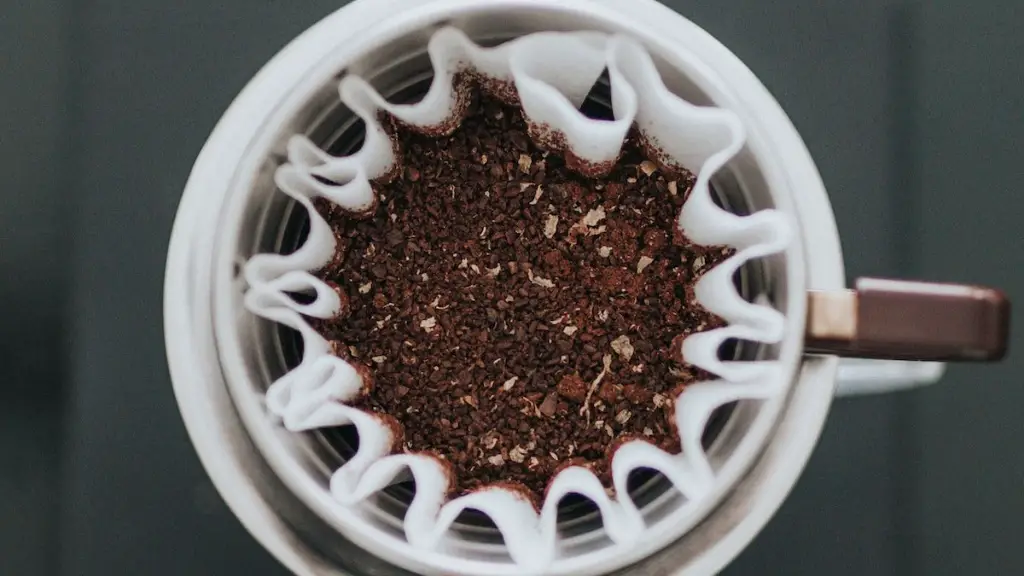Are you a daily coffee drinker, curious about its effects on your health? If you’ve ever asked yourself “what is the best coffee to drink for my health” then you’ve come to the right place. In this article we will delve into the effects of coffee on your health, looking at what type of coffee is best for you, and exploring the various pros and cons associated with drinking coffee.
Coffee seems to be a morning ritual for a lot of people. Whether it’s the taste or the energy boost, there’s certainly something comforting about sipping a hot or cold cup of joe in the mornings. When it comes to the effects of coffee on your health, the scientific community isn’t sure whether it’s a friend or a foe. The range of studies vary, with some showing that coffee has beneficial health effects, and others showing that it has the potential to do more harm than good.
So, what is the best type of coffee to drink for your health? According to experts, the less processed and more natural your coffee is, the better it is to consume. So, this would mean choosing organic and unroasted beans over regular coffee, or drinking cold brew or cold brewed coffee instead. It’s also important to choose low-fat or fat-free creamers, as well as sugar-free sweeteners. Additionally, adding things like cinnamon, turmeric, ginger and other natural spices into your coffee can help to boost its health benefits. Finally, because filtered coffee can reduce the amount of cafestol in your coffee, it’s best to opt for a French press or a paper filter when making coffee at home.
When it comes to the possible health benefits of drinking coffee, there are some promising studies. For example, a study from the American Heart Association showed that drinking three to five cups of coffee a day could reduce the risk of stroke by up to 20%. Additionally, some studies suggest that moderate coffee intake can lead to increased alertness and concentration. And finally, some studies have shown that coffee drinkers have a lower risk of developing type 2 diabetes.
On the other hand, there are also some potential risks associated with drinking coffee. For example, too much coffee can lead to jitteriness, headaches and insomnia. Additionally, studies have shown that drinking too much coffee can increase the risk of heart disease. And finally, some studies suggest that drinking too much coffee could lead to an increased risk of certain types of cancer.
When it comes to choosing the best type of coffee to drink for your health, you’ll need to consider both the possible health benefits and risks associated with drinking coffee. A moderate amount of coffee can be beneficial, but it’s important to practice moderation and choose organic and unroasted beans when possible, as well as low-fat or fat-free creamers and sugar-free sweeteners. Additionally, adding natural spices to your coffee can help to boost its health benefits.
Coffee and Brain Health
Coffee has long been linked to improved brain health. Studies suggest that coffee can help improve memory and cognitive performance, fight against cognitive decline and Alzheimer’s disease, and even reduce the risk of dementia. The caffeine in coffee has been found to improve alertness and focus, and studies have found that people who drink coffee have better performance on tests involving memory, problem-solving and decision-making.
The antioxidants in coffee have also been linked to improved brain health. Studies suggest that the antioxidants found in coffee can help to protect the brain from damage caused by free radicals, and may even improve cell signaling and neuron repair. Additionally, some studies suggest that coffee and the nutrients it contains can even help to protect the brain from stroke, Parkinson’s disease, and some types of cancer.
However, it’s important to note that too much coffee can have a detrimental effect on your brain health. High levels of caffeine can lead to anxiety, irritability and jitteriness, as well as sleep disturbances, so it’s important to practice moderation when it comes to drinking coffee.
Coffee and Weight Loss Benefits
Coffee has long been linked to weight loss benefits, and the buzz surrounding the potential health benefits of coffee has spurred a whole new wave of research into its effects on weight loss. Studies suggest that coffee can help to reduce body fat, increase metabolism, improve insulin sensitivity, suppress appetite, and even reduce the risk of obesity.
Caffeine has been found to boost metabolism and energy levels, helping to improve physical performance and reduce fatigue. Additionally, the antioxidants in coffee have been linked to improved metabolic health, and some studies suggest that coffee can even reduce the risk of type 2 diabetes.
When it comes to appetite suppression, the caffeine in coffee can help to reduce hunger levels. Additionally, the antioxidants in coffee can help to reduce inflammation, aiding in metabolic health and weight loss. Finally, some studies suggest that coffee can help to improve the absorption of important vitamins and minerals, while also providing a feeling of fullness.
However, it’s important to note that the effects of coffee on weight loss are not definite, and more research is needed to understand the full effects of coffee on weight loss and health. Additionally, it’s important to be mindful of any added sugar or calories that you may be adding to your coffee, as these can have a detrimental effect on your health.
Coffee and Cardiovascular Health
Recent studies suggest that moderate coffee consumption is linked to improved cardiovascular health. For example, a study from the American Heart Association showed that drinking three to five cups of coffee a day was associated with a 20% reduction in the risk of stroke. Additionally, some studies suggest that coffee can help to reduce the risk of developing heart disease, and other studies suggest that coffee can even reduce the risk of certain types of cancer.
Coffee is also known to contain certain compounds that can help to reduce inflammation and improve metabolic health, which is important for heart health. Additionally, coffee can help to reduce levels of LDL (“bad”) cholesterol, as well as improve levels of HDL (“good”) cholesterol.
However, it’s important to note that more research is needed to understand the full effects of coffee on cardiovascular health. Additionally, it’s important to practice moderation when it comes to coffee consumption, as too much caffeine can have a detrimental effect on heart health.
Coffee and Bone Health
Research suggests that coffee may have positive effects on bone health. Studies have found that coffee can help to improve bone density and reduce the risk of osteoporosis. Additionally, coffee can also help to reduce the risk of fractures by providing essential nutrients, such as calcium and magnesium.
The antioxidants in coffee have also been found to help reduce inflammation, which can help to improve bone health. Additionally, the caffeine in coffee can help to promote bone formation, and some studies suggest that it can even help to reduce the risk of developing certain types of cancer.
However, it’s important to note that more research is needed to understand the full effects of coffee on bone health. Additionally, it’s important to practice moderation when it comes to coffee consumption, as too much caffeine can have a detrimental effect.
Coffee and Digestive Health
Coffee has long been linked to improved digestive health. Studies suggest that the antioxidants and compounds found in coffee can help to reduce inflammation, improve gut health, and even reduce the risk of certain types of cancer. Additionally, some studies suggest that coffee can help to improve the absorption of vitamins and minerals, while also providing essential nutrients.
The antioxidants in coffee have also been found to help improve intestinal health, reduce symptoms of IBS, and even reduce the symptoms of certain neurological disorders. Additionally, some studies suggest that coffee can help to improve digestive health by increasing beneficial bacteria in the gut and improving digestion.
However, it’s important to note that more research is needed to fully understand the effects of coffee on digestive health. Additionally, it’s important to practice moderation when it comes to drinking coffee, as too much caffeine can lead to digestive issues such as diarrhea and constipation.





